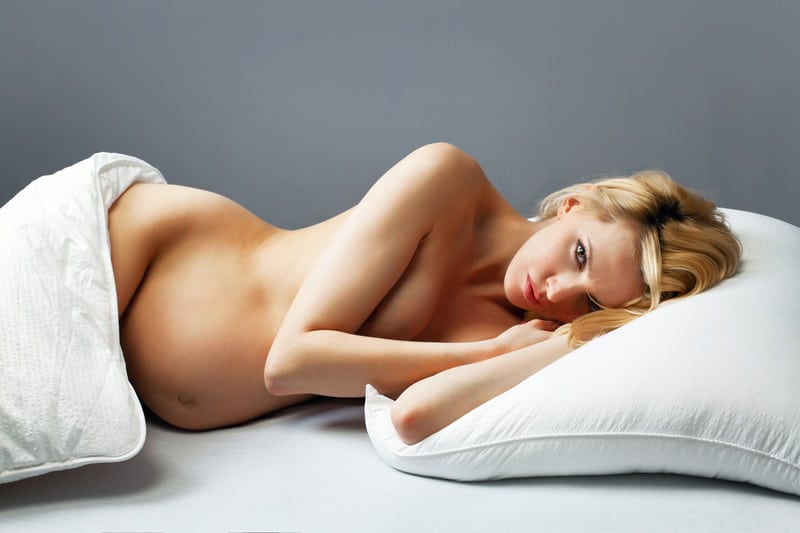
Vaginal Varicose Veins – Is that even a thing?
If you have even heard of vulvar varicosities, chances are it is because you have experienced them. And it is likely you had to work ridiculously hard to uncover any information about the topic. Varicose veins of the vulva and perineum just don’t get a whole lot of press. Commonly quoted estimates state that about 10 percent of women will experience vulvar varicosities during pregnancy, but it is possible that number is higher because some women just won’t talk about it.
And if you look at the rare online discussion about vaginal varicose veins, like JustMommies.com you will see that women who experience the symptoms of vulvar varicosities are completely surprised when it happens—because they had no idea such a thing could even happen.
Let’s change that!
Let’s get women the information they need to live more comfortable, more present lives. Let’s start talking about it. Let’s take it from being a thing to just being, you know, a thing. If we need to, let’s talk to our sisters, our girlfriends, our wives, our mothers. And, if you have any questions about this or any other vein issue, another great person to talk to is a qualified vein specialist.
Vulvar varicosities: But Why?!
Basically, it is possible to develop a varicosity in any part of the body. But there are a few reasons why your vulvar area can be susceptible.
- Gravity. Baby and placenta put a lot of pressure on the pelvic region, and this creates back pressure on the veins in the pelvic floor.
- Hormones. The pregnancy hormones that are circulating to prepare your pelvis for birth also make your veins—all of your veins—prone to distension. Estrogen, progesterone and relaxing all play a part.
- Mechanics. The venous valves that are designed to provide some protection against pooling of blood in lower regions occur less frequently the closer the vein is to the heart. In a small percentage of women, there are no venous valves in the vulvar area.
Some Good News About Vaginal Varicose Veins (and a Little Bad News-but Mostly Good)
Let’s start with the good...
- Good news—they are transient. Chances are good that they will go away once baby is born.
- Bad news—they are transient. If you get them once, vulvar varicosities will come back—and likely sooner—with each subsequent pregnancy. As well, with each pregnancy, there is an increasing chance that they will stay, even after the baby is born.
- Bad news—they could be a sign of more ominous things. It is possible that vulvar varicosities are a sign that you have developed, or are developing, Chronic Venous Insufficiency (CVI), especially if they appear with varicose veins in your legs. A qualified vein specialist can look at your veins and tell you if this is the case for you.
Here's the Really Good News
The really good news, though, is that if varicosities do appear during pregnancy, and don’t go away once baby is born, there are vulvar varicosity treatments available that can get you back to feeling like your old self with minimal fuss. A qualified vein specialist like Dr. Jilanne Rose from Advanced Vein Institute of Arizona (AVIA) will be happy to talk to you about your options. However, as she wants you to have the most successful experience possible, she will caution you about the timing of treatments.
“One thing to keep in mind is that if you are currently or recently pregnant, you will have to wait a bit before a vein specialist can treat you,” Dr. Rose says. “Birth will relieve much of the pressure on the area. However, your body will need some time—at least a few months—for hormone levels to return to normal and for your body to re-adjust. In the end, you might not even need treatment.”
While you wait, Jilanne has a few suggestions you can try to find some temporary relief from the symptoms of vulvar varicosities.
More good news: it is really easy to talk to Jilanne. Call the office or fill out this form if you would like to get a conversation started about whether vein treatment is what you need to get back to living more comfortably.
Leg Cramps There are many reasons for muscle cramps. A lot of people experience them because of a deficiency of certain key elements such as potassium and magnesium. Others, particularly those that live in warmer climates such as Arizona, experience cramps due to dehydration. A large number of patients I consult, flat out do not…
Read MorePregunta: yo tenía EVLT por otro doctor de la vena y resolvió la mayor parte de mi dolor. Cuatro semanas después de que tuve escleroterapia con espuma, mi dolor regresó. En realidad, ha empeorado. Un mes post, me pongo 30-40 mm medias diarias, pero aún así me duele mucho. Veo a mi médico en un…
Read MorePregunta: el calcetín de compresión de rodilla alta está pellizcando la parte superior de mi rodilla y dejando marcas doloridas (muescas). Mi trabajo requiere que me quede todo el día. Tengo venas de araña en mis tobillos y en el costado de mi pantorrilla exterior. ¿Debo seguir gastando la media aunque sea incómodo?
Read MoreQuestion: I had EVLT by another vein doctor and it resolved most of my pain. Four weeks after I had foam sclerotherapy, my pain returned. Actually, it has worsened. One month post, I wear 30-40 mm stockings daily, but still I hurt SO much. I see my doctor in a month, any thoughts about what…
Read MoreQuestion: The knee-high compression sock is pinching the top of my knee and leaving sore marks (indentations). My job requires me to stand all day. I have spider veins in my ankles and on the side of my outer calf. Should I continue to wear the stocking even though it’s uncomfortable?
Read MoreQuestion: I went to a doctor in Glendale and finished all my Sclerotherapy injections and have had 2 EVLT (endovenous laser therapy) procedures, a vein ligation and a microphlebectomy for spider veins, all of which I wore 20-30 mmHg compression thigh-high hose for 2-3 weeks. After I had laser treatments on my legs, I was…
Read MoreQuestion: I live in Tucson, Arizona and had VenaSeal done by a doctor here. Should I have pain and swelling after my VenaSeal procedure was carried out? It was purported to be painless compared to radiofrequency ablation (RFA).
Read MoreQuestion: I don’t know who to turn to. I take Furosemide and it doesn’t seem to be helping as fast as it should be. Do I need to see a podiatrist or do I need to get a referral to go see a specialist? I’ve been off work for 2 and 1/2 months from total…
Read MoreQuestion: My wife has had multiple ultrasounds. One ultrasound tech found a bad perforator at 5mm, but they wanted to do open surgery. Another ultrasound tech from the Dr she wanted to use who does laser and RF could not find the perforator. What to do?
Read MoreCabbage not always an “Irish” food, but beneficial for varicose veins Whether you’re one of the 34.5 million Americans who claim Irish ancestry or not, celebrating Saint Patrick’s Day has some potential health benefits! When the Irish immigrated to the United States, they found beef brisket was inexpensive, and nutrient dense cabbage was affordable and…
Read More

